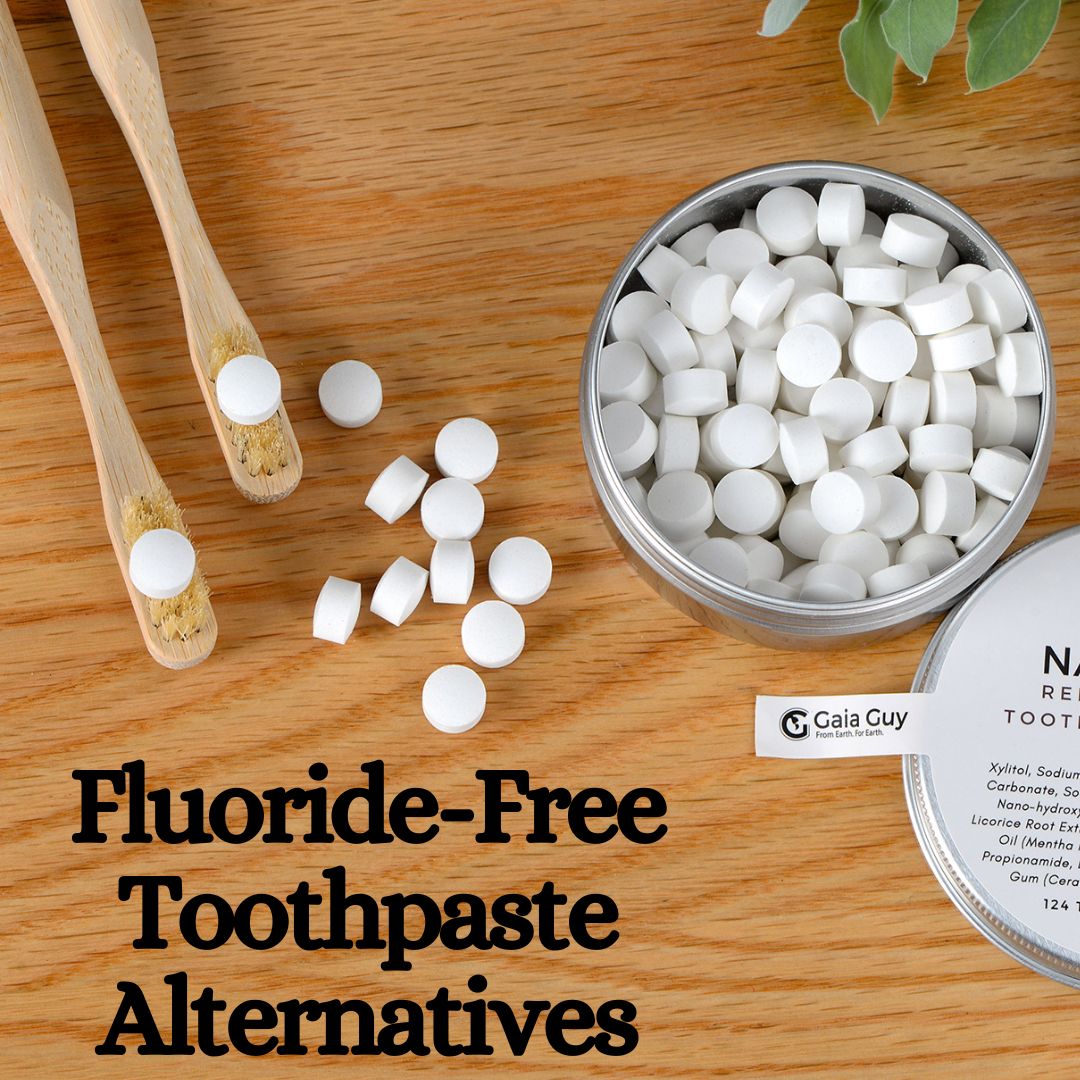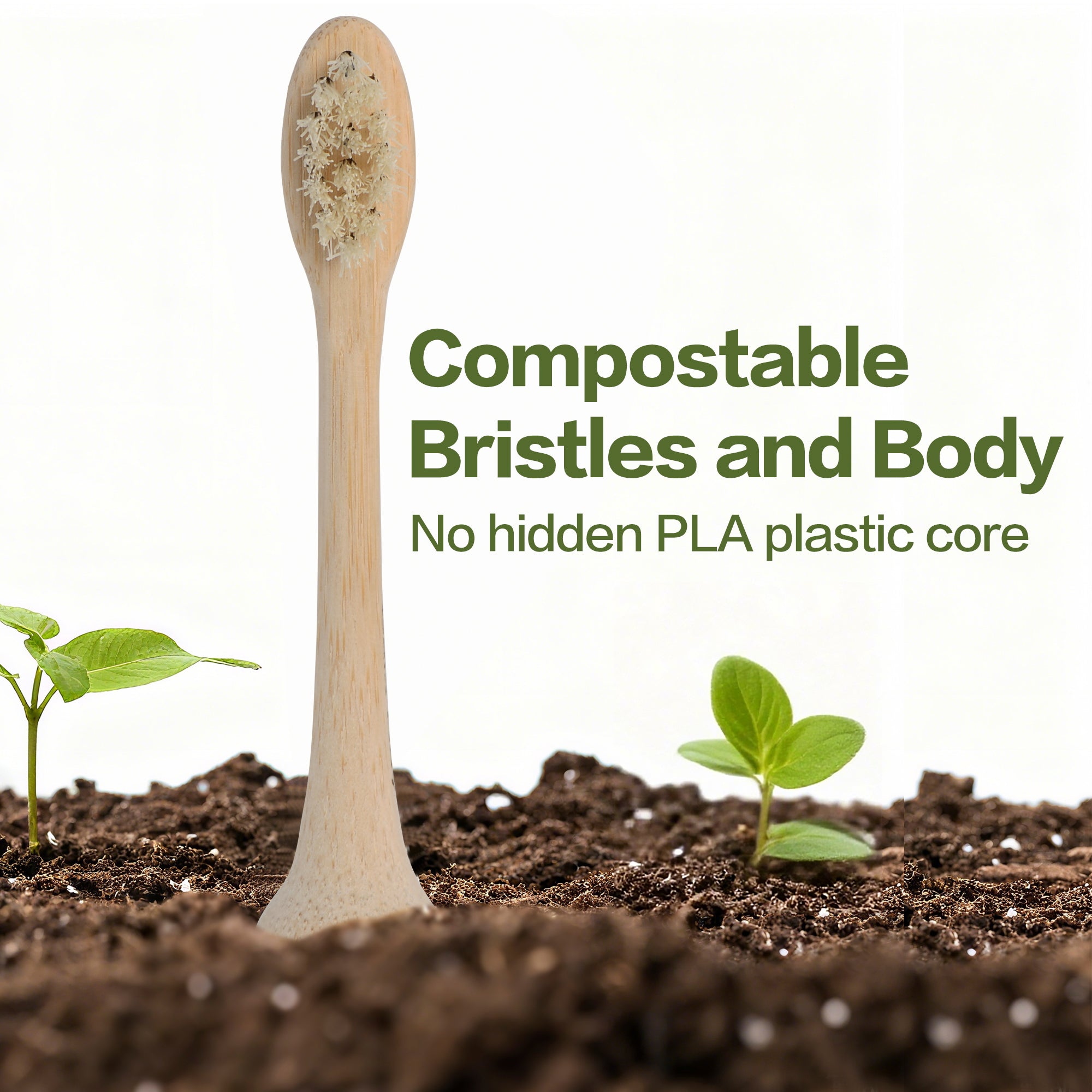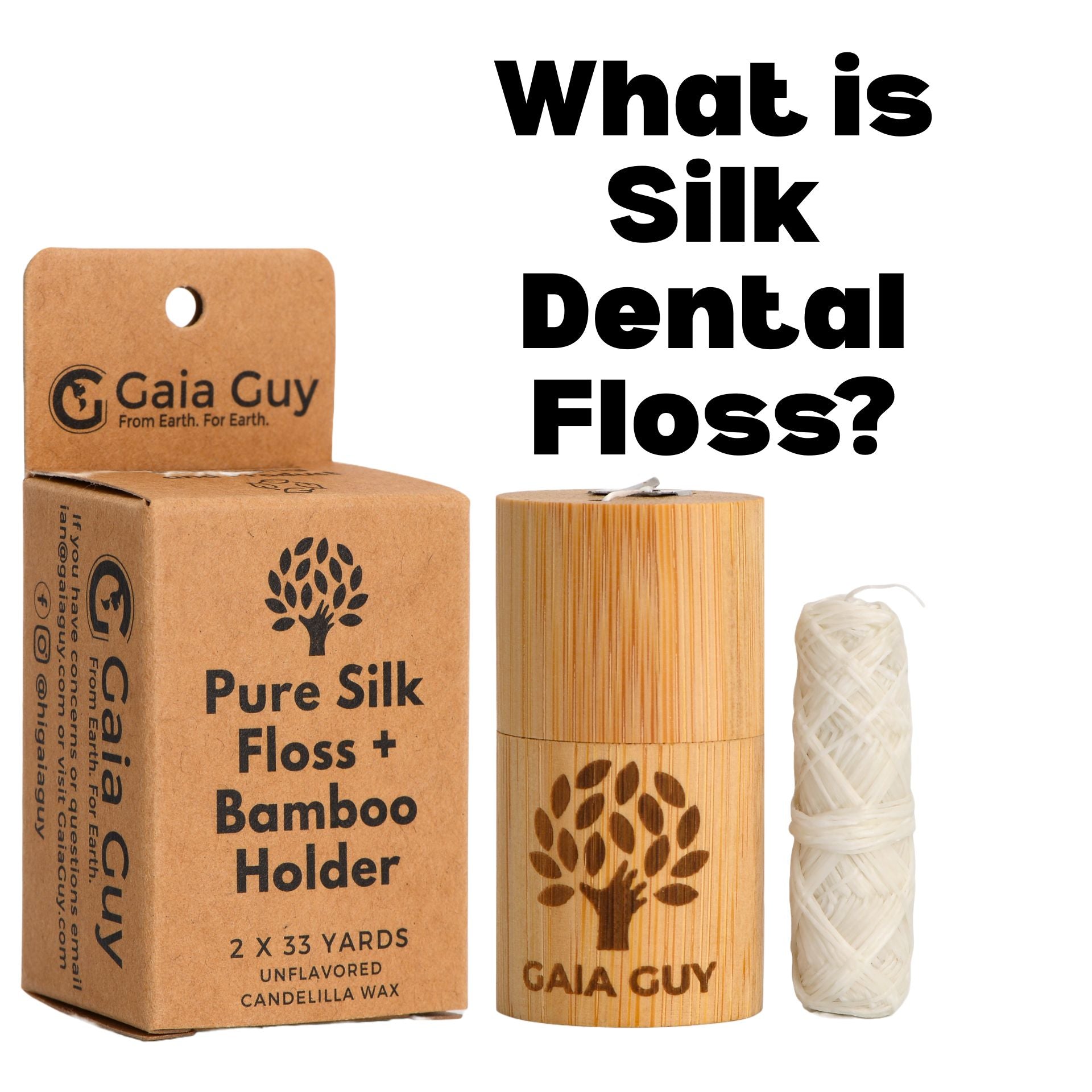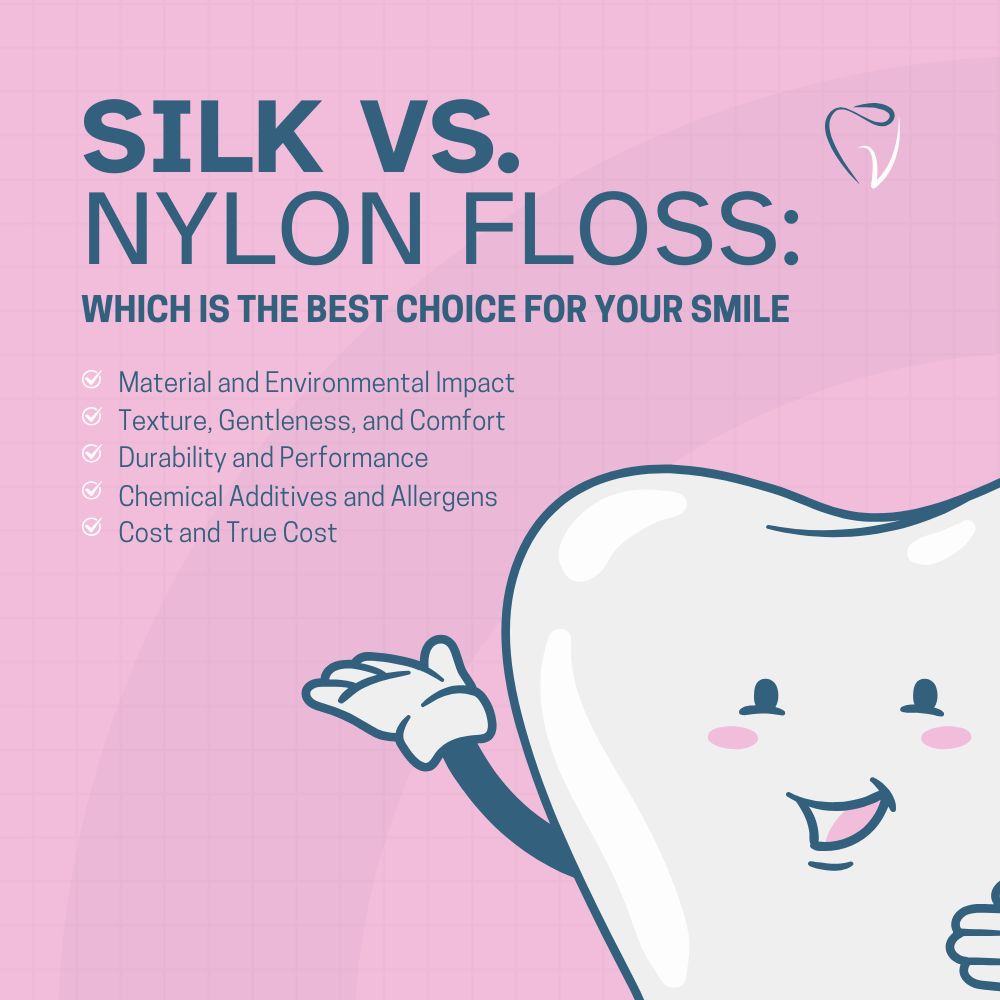As awareness of potential fluoride side effects grows, individuals are seeking fluoride-free toothpaste alternatives for their oral health.
The good news is there a number fluoride alternatives so you can maintain top-notch oral health care.
Let's take a look at some ingredients that not only effectively promote dental hygiene without relying on fluoride but also come with unique considerations.

In this article, we'll explore fluoride-free toothpaste alternatives and discuss the positives and negatives of each.
Why should you use a fluoride-free toothpaste?
You should a toothpaste free from fluoride if you want to keep the IQ you were born with. The National Toxicology Program reported 52 of 55 studies found decreases in child IQ with increased fluoride. “Our meta-analysis confirms results of previous meta-analyses and extends them by including newer, more precise studies… The data support a consistent inverse association between fluoride exposure and children's IQ. Source
That was more so looking at fluoride in water, but still limiting exposure seems to be a good thing so why brush with it daily if you don't have to, right?
It should be noted that another studied said, "Fluoride can be toxic in extremely high concentrations. Its everyday use in concentrations present in beverages for dental hygiene is safe." Source
OK first up on the list of fluoride-free toothpaste alternatives is baking soda.
Baking Soda: A Gentle Cleaning Miracle
What is baking soda?
Also known as sodium bicarbonate, baking soda is a natural cleaning agent with mild abrasive properties. When mixed with water, it forms a paste that effectively removes plaque and reduces staining. Its alkaline nature neutralizes acidic conditions in the mouth, hindering the growth of harmful bacteria. Baking soda offers a versatile solution for maintaining clean and fresh teeth.
Positives:
- Mild Abrasive: Baking soda's mild abrasive nature aids in plaque removal and stain reduction.
- Neutralizes Acidity: Acts as an alkaline substance, neutralizing acidic conditions in the mouth.
- Enamel Abrasion Risk: Excessive use may lead to enamel abrasion, so it's advisable to use in moderation. This can be said of any toothpaste really.
- Limited Fluoride Replacement: Baking soda does not provide the fluoride protection found in traditional toothpaste.
Shockingly it is much less abrasive than everything except just using water. Even natural toothpastes and popular brands that add sodium bicarbonate come up much higher on the Relative Dentin Abrasive (RDA) value. Source
Coconut Oil Pulling: Ancient Remedy, Modern Benefits
What is coconut oil pulling?
Rooted in ancient traditions, coconut oil pulling involves swishing a tablespoon of coconut oil in the mouth for around 15 minutes daily. This technique penetrates and breaks down plaque, promoting oral health and combating bad breath. While lacking robust scientific proof, many users attest to the refreshing feeling and potential benefits of coconut oil pulling.
Positives:
- Plaque Reduction: Coconut oil pulling has demonstrated efficacy in reducing plaque and bacteria.
- Fresher Breath: Contributes to improved breath freshness.
- Limited Scientific Evidence: While anecdotal evidence exists, scientific proof of its effectiveness is somewhat limited.
- Time-Consuming: Requires a 15-minute daily commitment, which may be challenging for some.
Neem: Nature's Toothbrush
What is neem?
Derived from the tropical neem tree native to India, neem has remarkable oral health benefits. Known for its antimicrobial properties, neem fights off bacteria causing cavities and gum diseases. Neem-based toothpaste or neem powder can be seamlessly incorporated into your oral care routine, offering a natural solution for healthy teeth and gums.
Positives:
- Antimicrobial Properties: Neem's natural antimicrobial properties combat bacteria that cause cavities and gum diseases.
- Traditional Use: Used historically in oral care practices in various cultures. You can also buy neem or miswak sticks and give them a go for a natural toothbrush.
- Heavy Metal Concerns: Some neem products may contain heavy metals, so it's crucial to choose reputable sources.
- Limited Fluoride Replacement: Neem-based products typically lack fluoride.
Charcoal Toothpaste: Black Beauty for Your Teeth
What is charcoal toothpaste?
Activated charcoal, with excellent absorption properties, is the key ingredient in this unconventional toothpaste. It effectively removes surface stains and toxins, providing a gentle exfoliating action for a brighter smile. However, it's essential to use charcoal toothpaste sparingly to prevent potential enamel wear, as cautioned by dental professionals. It can even leave behind grey stains.
Positives:
- Absorption Properties: Activated charcoal absorbs toxins and removes surface stains.
- Natural Whitening: Can contribute to a brighter smile through stain removal.
- Messy Application: The charcoal's black color can be messy during application and brushing.
- Enamel Concerns: Prolonged and excessive use may contribute to enamel wear, according to dental associations.
Xylitol: Sweetening Oral Health Naturally
What is xylitol?
A natural sugar substitute derived from birch bark, xylitol is renowned for its sweetening properties without the drawbacks of sugar. In oral care, it helps prevent cavities by inhibiting the growth of bacteria that cause tooth decay. Embrace the natural sweetness of xylitol as a fluoride-free alternative for a healthier and cavity-resistant smile.
Positives:
- Cavity Prevention: Inhibits the growth of bacteria causing cavities, contributing to cavity prevention.
- Natural Sweetener: Offers a natural and pleasant sweetness without the drawbacks of sugar.
- Gastrointestinal Effects: Excessive consumption may cause digestive discomfort for some individuals. Luckily you don't need to swallow your toothpaste to get the benefits.
- Toxicity to Pets: Xylitol is toxic to dogs and should be kept away from pets.

Nano-Hydroxyapatite: Scientific Innovation:
What is Nano-Hydroxyapatite?
It is a fluoride-free alternative featured in oral care products like toothpaste, renowned for promoting enamel remineralization and reducing sensitivity. These innovations, whether in toothpaste or specialized tablets, offer a convenient, eco-friendly, and portable solution for those seeking effective alternatives.
The controlled particle size of Nano-Hydroxyapatite plays a crucial role in the mineralization process, providing a promising option for individuals looking to embrace the benefits of this scientific breakthrough in oral health. Source
Positives:
- Enamel Remineralization: Nano-Hydroxyapatite promotes enamel remineralization and reduces sensitivity.
- Controlled Particle Size: The particle size plays a crucial role in the mineralization process.
- Limited Availability: Availability may be more limited compared to traditional toothpaste options.
Diatomaceous Earth Toothpaste: Natural Abrasive Cleansing
What is Diatomaceous earth?
It's a natural substance derived from fossilized diatoms, tiny water-dwelling creatures primarily composed of silica, serves as an all-natural abrasive. Crushed from the skeletons of these diatoms, it is effective for various purposes, including maintaining clean and white teeth.
Positives:
- Natural Abrasive: Effective in removing plaque and tartar as a natural abrasive.
- Versatile Use: Can be used for various purposes, including oral care.
- Potential Grittiness: Some users may find its texture gritty, impacting the overall brushing experience.
- Limited Long-Term Studies: Long-term effects may not be fully understood due to limited studies.
Calcium Citrate Toothpaste: Mineral Enrichment for Teeth
What is calcium citrate?
Derived from calcium and citric acid, calcium citrate is a mineral supplement known for its role in supporting mineralization. In oral care, it contributes to tooth strength and potentially enhances enamel. While studies on its effectiveness as a primary toothpaste ingredient are limited, calcium citrate offers a natural alternative for those looking to enrich their oral care routine with mineral benefits.
Positives:
- Mineral Enrichment: Calcium citrate supports mineralization, potentially enhancing tooth strength.
- Natural Source: Derived from calcium and citric acid, providing a natural alternative.
- Limited Primary Toothpaste Studies: There is limited research on its effectiveness as a primary toothpaste ingredient.
Fluoride-free toothpaste alternatives offer diverse options for natural and eco-friendly oral care. From baking soda to coconut oil pulling, neem-based toothpaste to charcoal toothpaste, and the innovative Nano Hydroxyapatite.

Gaia Guy has two natural fluoride-free toothpastes for you to try. NanoMint Toothpaste Tablets with Nano-Hydroxyapatite, xylitol and baking soda and REMineral Mint Natural and Organic Toothpaste which has calcium citrate, baking soda, diatomaceous earth and calcium citrate.
Both of them work great and are minty fresh because having fresh breath is just as important as keeping tooth decay away.
Embrace the power of nature for a healthier smile, being mindful of the unique characteristics of each alternative. Remember, informed choices lead to better oral care outcomes!











